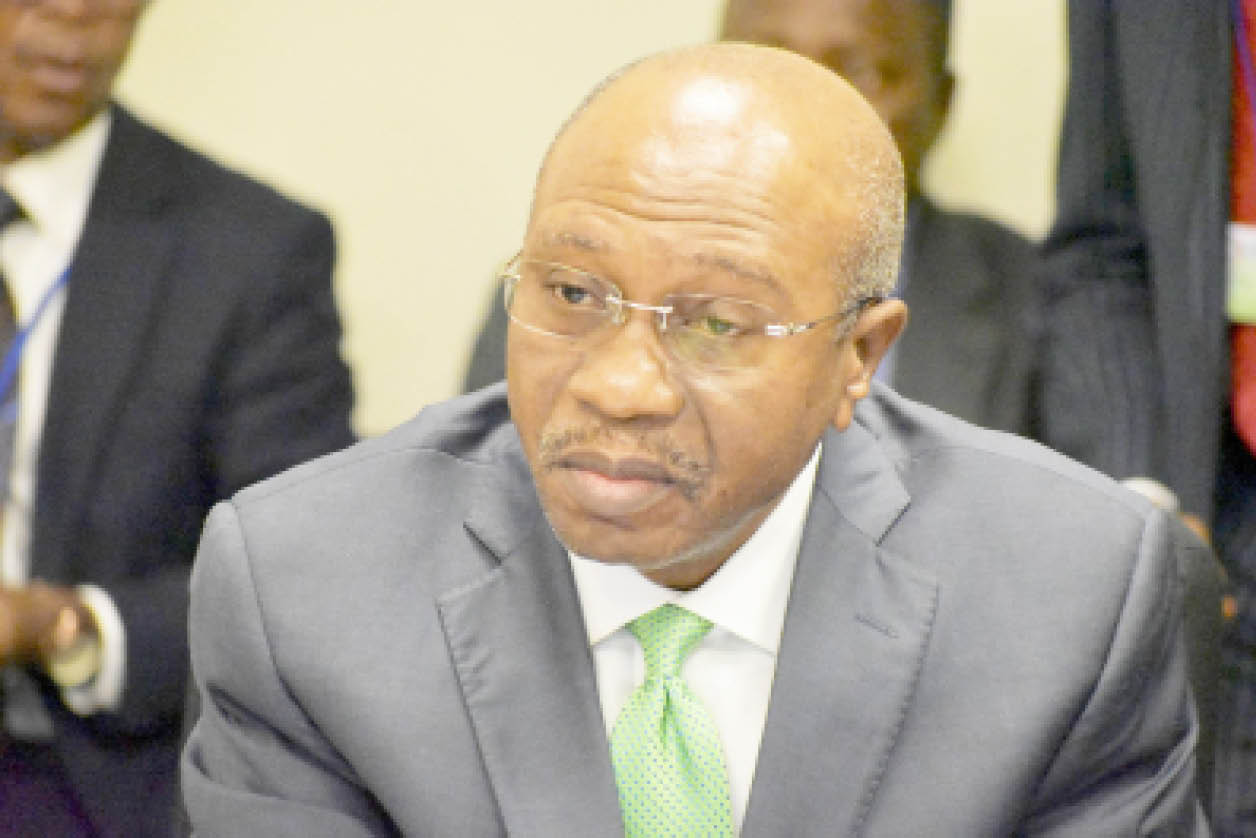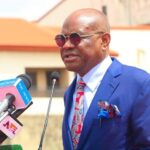The governor of the Central Bank of Nigeria, Mr Godwin Emefiele, appears to be in a fanatical grip of a new religion he calls ‘cashless policy’. But as a false prophet with a false message, Emefiele is in luck: he has a convert in Nigeria’s Number One and most important citizen.
How President Muhammadu Buhari has come to believe that Emefiele’s so called cashless policy has any value beyond window-dressing is beyond me. The president obviously seems to believe in Emefiele’s cashless policy enough to compel Nigerians through weeks of harrowing and needless experience in the twilight of his presidency, and to risk his legacy along with it. All of which raises a number of questions. What exactly is Emefiele’s policy and how much is it worth as a policy? And why would President Buhari risk his all this late for it?
Emefiele’s cashless policy is based on a triad of three reform measures: the redesign of the naira, the cash withdrawal limits for individuals and corporate organisations, and the window for their implementation all at once. All three have been dismissed by many as politics, not policy, on grounds that if Emefiele and the president do not have any political cards up their sleeves, why not allow a more reasonable time for their implementation? While this criticism of the CBN and the presidency has some merit, it needs to be said that dismissing an argument as politically motivated is not the best way to win it. The cashless policy must be laid bare in its own terms.
According to Mr Emefiele, the naira redesign will redirect 85 per cent of Nigeria’s currency that is outside of the banking system and in the hands of currency hoarders; reduce the incidence of counterfeiting, and sundry criminality. The cash withdrawal limits of N500,000 per week for individuals and N5 million respectively, the CBN says, will help reduce galloping inflation, particularly on food and other consumer goods in the country. Unfortunately, the CBN has not been able to say precisely why all these must be done within a short window, initially of six weeks from December 15 2022 to January 31, but now extended to February 10 2023, which is why suspicions of political motivation persist. But we have agreed here to take the CBN at its own words in order to lay the policies bare as worth no more than the memos and circulars on which they have been written.
- BREAKING: Three APC Governors sue FG over naira scarcity
- Of red goats and agricultural development policy
Overall, the CBN has said that these reform measures will enable it to have greater control on the country’s monetary policy. If these objectives are the reasons Nigerians have had to go through some of the most difficult periods of their lives, with reported cases of customers fighting or slumping to their deaths at banks, then I have no hesitation in saying that they are utterly useless. In fact, the cashless Nigeria policies are so worthless, as far as policymaking goes, they border on criminality on the part of the CBN and government. It is true that governments are free to make policy according to their convictions, including bad policy. But there must be consequences for ill-conceived and poorly implemented policies that impose untold hardships on citizens at such a scale as we are witnessing in Nigeria today.
First of all, how did the 85 per cent of the currency in circulation get into the hands of the criminally-minded hoarders, in the assumption of the CBN, in the first place? How did currency counterfeiters get away with their criminality? These are the real questions for the CBN to address, and in the medium to longer term, redesigning the currency is no solution to these questions, at all. With the exception of the small percentage of a country’s currency that counterfeiters can fake, which should usually be no less than 1% of the total in circulation, almost all monies in circulation at any one time come from the CBN itself through the retail banks.
Therefore, if as much as 85 per cent of the naira in circulation is in the hands of hoarders, then this only points to CBN’s own weak currency management processes and procedures. Since currency hoarders do not print their own money, they must have got it from the banks, and Nigerians banks, as we all know, defer to and bend the rules to “big-men”, while applying the same stridently on ordinary citizens in order to cover for their own collusion. What the CBN needs is a tougher regime regulations and sanctions on the commercial banks, the weakest links in Nigeria’s monetary system, not an expensive and socially painful naira redesign policy.
Without such a regime, two or three years from now, even the new naira notes will find their way back to the hoarders, via the same fraudulent processes they got 85 per cent of the old notes in the first place. And as for the counterfeiters, the cheaper and most effective solution is to strengthen the security measures in the old notes, after all, there is no indication, to the layman at least, that the new notes are more secure than the old ones. In other words, the naira redesign will not solve the hoarding or counterfeiting problems because it does not address their root causes.
What about the cash withdrawal limits? Emefiele’s argument is that the limits of N500,000 and N5 million per week for individuals and corporate organisations will help control inflation. This argument is not only weak and untenable, it betrays rank ignorance of how economics—and inflation in particular—works. Persistent inflation is always caused by many, sometimes very different, factors, some of them largely external for developing countries like Nigeria.
The rising inflation Nigeria has been facing over the past few years has been caused by three main external factors: the collapse of the prices of crude oil in the international market in 2014-2016, the pandemic and its global economic disruptions, and the global economic effects of the Russia-Ukraine War. These have been compounded by three local factors: the insecurity that has caused massive disruptions in farming; the mess in the oil sector from subsidy to oil theft; and the cumulative effects of all these on the value of the naira. Unless we are in a first year undergraduate economics course, I don’t see how these problems can be solved by any local cash withdrawal limits, and tons of economics PhDs at CBN must know this.
Moreover, if the CBN wishes to implement a cashless policy in Nigeria, the answer will be massive deployment of technology, particularly fast and reliable internet services and millions of POS machines for small scale traders, an opportunity to actually bring the unbanked into the banking system without much fuss. If a taxi driver, a fuel attendant, a fruit seller and a grains trader in the local market, all have POS machines for their transactions, to give but few examples of Nigerians trapped in our large informal market, there will be little need to impose any cash withdrawal limits, or at least such limits will then make sense.
All told, for me, Emefiele is skirting the tough questions his job calls for and he is putting Nigerians through so much hardship merely to cover the policy failings of the CBN in the name of implementing a phoney cashless policy the hardest way possible. This leaves the question of why has President Buhari gone along?

 Join Daily Trust WhatsApp Community For Quick Access To News and Happenings Around You.
Join Daily Trust WhatsApp Community For Quick Access To News and Happenings Around You.


